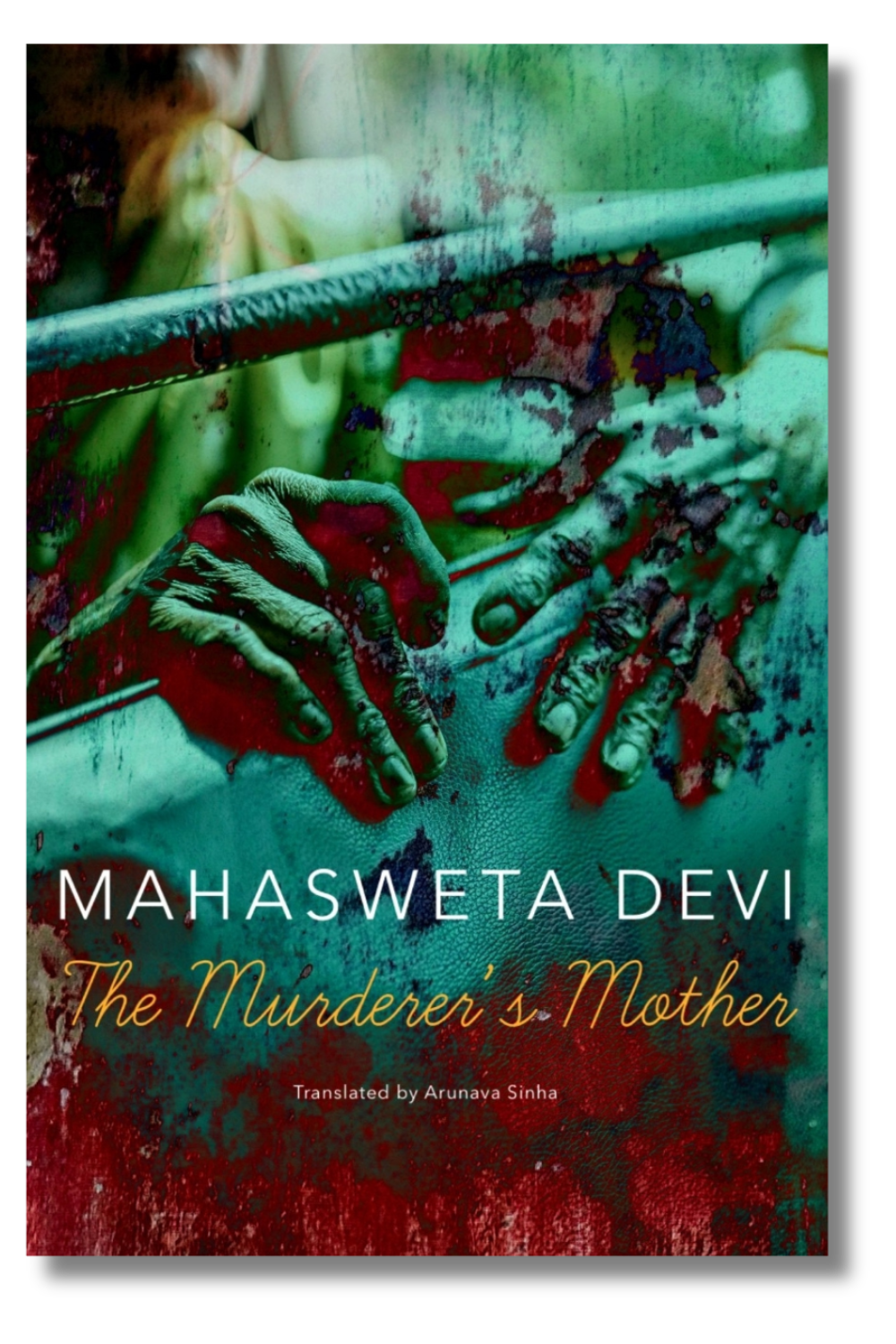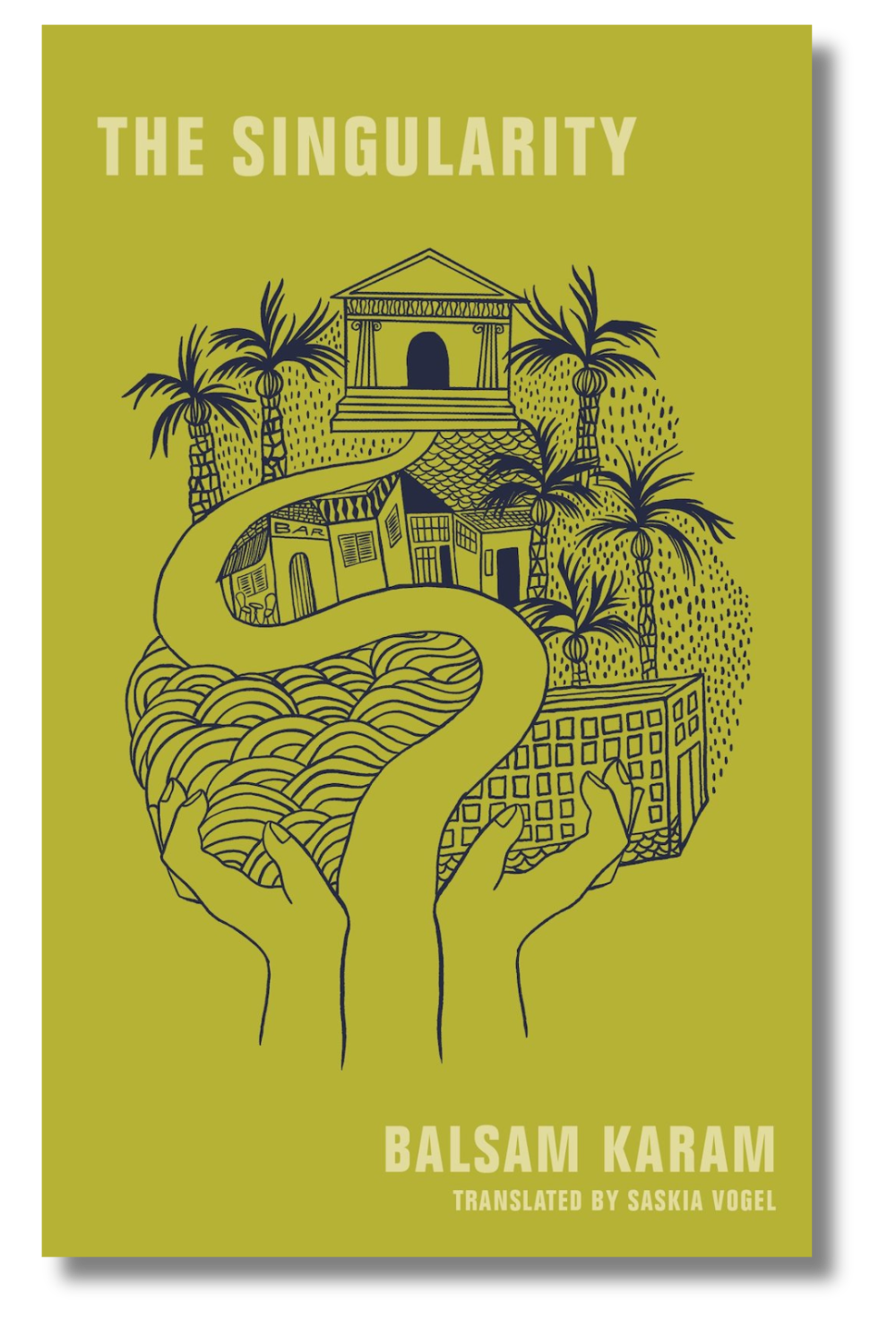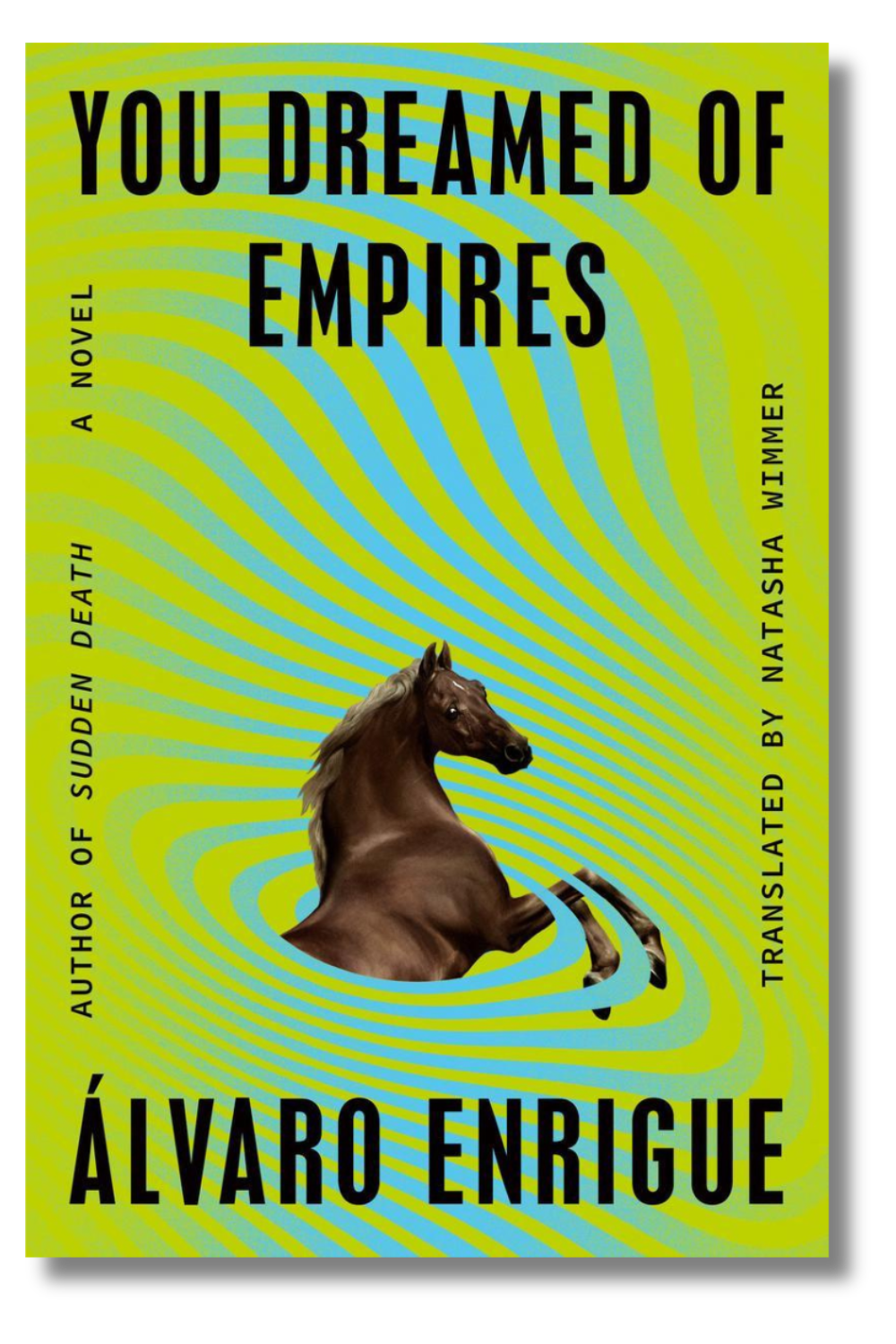From Seagull Books | The Murderer’s Mother by Mahasweta Devi, translated from the Bengali by Arunava Sinha | Fiction | 208 pages | ISBN 9781803092324 | US$25.00
What the publisher says: “The Murderer’s Mother takes readers to the late 1970s in the Indian state of West Bengal, where the Communist Party–led Left Front has just been voted into power. It tells the story of Tapan, who has been installed as a gang leader by the most powerful man in the locality in order to kill ‘unwanted obstacles,’ which he does, one after another.”
What I say: This tale of familial bonds, societal unrest, and power obtained both legitimately and via violence is told tersely, often through rapid-fire dialogue. At times, the politically charged 1970s setting and focus on underworld activities parallels David Peace’s work. And the staccato rhythms of violence evoked by Devi’s prose in Sinha’s translation are often haunting: “Tapan leant forward, raised his arm. The knife flew. Lodged itself in the ribs, on the left.”
From Deep Vellum | Nostalgia Doesn’t Flow Away Like Riverwater by Irma Pineda, translated from the Didxazá and Spanish by Wendy Call | Poetry | 184 pages | ISBN 9781646052783 | US$17.95
What the publisher says: “Nostalgia Doesn’t Flow Away Like Riverwater/Xilase qui rié di’ sicasi rié nisa guiigu’/La Nostalgia no se marcha como el agua de los ríos is a trilingual collection by one of the most prominent Indigenous poets in Latin America, Irma Pineda, set in the poet’s hometown of Juchitán, Oaxaca.”
What Cristina Rivera Garza says: “Here are words that, in three languages—written in translation between Zapotec and Spanish, and translated into English with immense care by Wendy Call—tell a story of multilayered experience that accretes within us as we leave, and we change, and we return once again.”
What I say: In these poems, nostalgia is both a running theme and something to be wary of. That tension—and the tripartite structure of this collection—keeps the reader on their toes, emotionally speaking. And the give-and-take of Pineda’s writing summons up something haunting throughout, as in these lines from “Two Paths”: “but hunger hurts us, too / sickness / poverty’s dark night / hurts more.” It’s both a fascinating trip into language and geography and a thoughtful exploration of how the two can influence one another.
From Feminist Press | The Singularity by Balsam Karam, translated from the Swedish by Saskia Vogel | Fiction | 236 pages | ISBN 9781558611931 | US$16.95
What the publisher says: “In an unnamed coastal city filled with refugees, the mother of a displaced family calls out her daughter’s name as she wanders the cliffside road where the child once worked. The mother searches and searches until, spent from grief, she throws herself into the sea, leaving her other children behind. Bearing witness to the suicide is another woman—on a business trip, with a swollen belly that later gives birth to a stillborn baby.”
What John Self at The Guardian says: “Language is at the heart of The Singularity, moving as it does from chaos and cacophony to the simple purity of a single voice, which is one measure of its brilliance and its beauty.”
What I say: The fact that this novel opens with two epigraphs, one from from Toni Morrison’s Beloved, is the first clue that this will be an emotionally harrowing experience. The novel’s prologue introduces the two perspectives at the heart of the novel. Throughout the book, there’s a profound sense of loss, whether of home or family or—frequently—both. In the book’s second half, time itself seems to bifurcate, and even the stability that had existed before is lost.
From Liveright | Forgottenness by Tanja Maljartschuk, translated from the Ukrainian by Zenia Tompkins | Fiction | 272 pages | ISBN 9781324093220 | US$17.99
What the publisher says: “An award-winning novel from one of Ukraine’s most prolific contemporary authors, Forgottenness tells a spellbinding story of belonging and uprootedness, as understood by two exiles across time.”
What Martha Anne Toll at NPR says: “The novel follows two threads: the biography of Polish Ukrainian social and political activist Viacheslav Lypynskyi (1882–1931) and a fictional memoir by a Ukrainian writer-narrator, whose name we do not learn. The narrator makes clear that she never met Lypynskyi; such a meeting would have been impossible, as the narrator was born after 1931.”
What I say: “Is it possible to shade over time with charcoal so that, God forbid, not a single face can poke out of the gloom of the past?” Maljartschuk writes in Tompkins’s translation. This tale of two alienated figures in their own time features evocative metaphors aplenty—and a broader meditation on time, memory, and history. The juxtaposition of a historical narrative with narration in the present day never feels overly mannered, and the result is a thoughtful illumination of both an underdocumented period in history and its effects in the present.
From FSG Originals | Termush by Sven Holm, translated from the Danish by Sylvia Clayton | Fiction | 128 pages | ISBN 9780374613587 | US$16.00
What the publisher says: “Termush caters to every need of its wealthy patrons—first among them, a coveted spot at this exclusive seaside getaway, a resort designed for the end of the world. Everyone within its walls has been promised full protection from the aftereffects of ‘the disaster.’”
What Kirkus Reviews says: “When unbelievable events regularly happen before our eyes, it’s instructive to have artifacts to give them context—for instance, this buried treasure, originally published by Danish novelist Holm in 1967, translated contemporaneously by British novelist Clayton, and resurrected from the archives with a new introduction by SF lighthouse keeper Jeff VanderMeer. It’s a slim novel, but its universal setting and farsighted themes combine with the author’s eerie minimalism to make it feel as modern as it is avant-garde.”
What I say: In his introduction to this edition of Termush, Jeff VanderMeer notes points of affinity between it and, say, J. G. Ballard’s work from a similar period. He’s spot-on—but at a time when news stories about billionaires preparing for the end of the world are not uncommon, Termush also feels all too relevant to 2024.
From Riverhead Books | You Dreamed of Empires by Álvaro Enrigue, translated from the Spanish by Natasha Wimmer | Fiction | 240 pages | ISBN 9780593544792 | US$28.00
What the publisher says: “You Dreamed of Empires brings Tenochtitlan to life at its height, and reimagines its destiny. The incomparably original Álvaro Enrigue sets afire the moment of conquest and turns it into a moment of revolution, a restitutive, fantastical counterattack, in a novel so electric and so unique that it feels like a dream.”
What Dwight Garner at The New York Times says: “Enrigue, who is clearly a major talent, has delivered a humane comedy of manners that is largely about paranoia (is today the day my head will be lopped off?) and the quotidian bummers of life, even if you are powerful beyond belief. This is the sort of novel in which no one’s armor fits quite right.”
What I say: There’s a line early in You Dreamed of Empires that neatly sets up what’s to come: “The emperor stuck the nail of his pinkie into the space between two teeth where the husk of a grasshopper had gotten stuck.” Consider the juxtaposition of nobility and power with more visceral and quotidian details. This is a book that abounds with taste and smells, making for an occasionally overwhelming sensory experience. Enrique also adds moments of anachronism into the mix (including a Marc Bolan reference); at its heart, though, this is a book that abounds with palace intrigue, and makes for a slightly askew lesson in power and its exercise.
Looking for more reading suggestions? Check out Tobias Carroll’s recommendations from last month.
Disclosure: Words Without Borders is an affiliate of Bookshop.org and will earn a commission if you use the links above to make a purchase.
Copyright © 2024 by Tobias Carroll. All rights reserved.

















